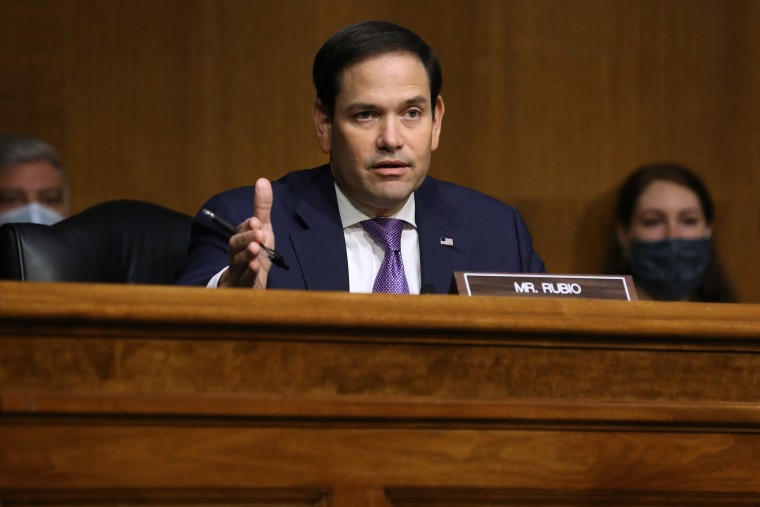It was nearly two weeks ago when President Joe Biden released a striking video closely tied to an Amazon.com unionization vote in Alabama. As we discussed, it was the boldest pro-labor declaration made by a sitting American president in recent memory.
A few days later, Sen. Tommy Tuberville (R-Ala.) denounced the president for having commented on the process involving possible unionization at an Amazon's fulfillment center in the Republican's home state of Alabama. "President Biden should not have stepped in on this and trying to convince people to vote for a union," the Republican said.
Evidently, Tuberville may have to issue a related statement in response to one of his GOP colleagues.
Republican Sen. Marco Rubio on Friday sided with Amazon workers in Alabama who are in the midst of organizing their warehouse, lending bipartisan support behind the closely watched union vote. In an op-ed in USA Today, Rubio asserted that Amazon has "waged a war against working-class values" and is "looking to crush the union vote" at an Amazon warehouse in Bessemer, Alabama.
"The days of conservatives being taken for granted by the business community are over," Rubio wrote. "Here's my standard: When the conflict is between working Americans and a company whose leadership has decided to wage culture war against working-class values, the choice is easy — I support the workers. And that's why I stand with those at Amazon's Bessemer warehouse today."
At first blush, it's easy to understand why the Floridian's op-ed caused a stir this morning: in situations like these, Democrats nearly always side with workers and organized labor, while Republicans nearly always do the opposite. At a minimum, it's unexpected to see Marco Rubio, a very conservative Republican, take the same stand as Joe Biden as warehouse workers vote on whether to unionize.
And for some, this may well represent the end of the conversation. Pro-union voices will almost certainly welcome Rubio's backing, without regard for his motivations or objectives.
But there is a larger context to this, and its political relevance is real.
Rubio routinely tries to position himself as a Republican who wants his party to champion the interests of workers, not the powerful. Rubio also routinely takes policy positions that are fundamentally at odds with that goal: the Florida senator has not only balked at raising the minimum wage, he also, just this week, helped introduce a bill to eliminate the estate tax. The bill would exclusively benefit millionaires and billionaires.
The senator will nevertheless likely point to his op-ed in support of Bessemer warehouse employees as proof that he's a genuine "pro-worker" Republican. But a closer look at what Rubio wrote suggests his position is far more anti-Amazon than it is pro-union. His op-ed complains, for example, not about working conditions in the Alabama warehouse, but rather about companies like Amazon being "allies of the left in the culture war." He added, "If Amazon thinks that conservatives will automatically rally to do its bidding after proving itself to be such enthusiastic culture warriors, it is sorely mistaken."
In all, Rubio's op-ed referenced the so-called "culture war" four times. He also derisively used the word "woke" twice.
In fact, it's hard not to get the impression that Rubio, in the midst of writing an ostensibly pro-union opinion piece, isn't actually pro-union at all. His op-ed added, for example, "[T]oo often, the right to form a union has been, in practice, a requirement that business owners allow left-wing social organizers to take over their workplaces."
The senator went on to explicitly denounce the Protecting the Right to Organize Act (PRO Act), which labor leaders and many progressive lawmakers consider one of the most important pro-union bills to be considered in decades.
If Rubio's USA Today piece helps sway some votes in the unionization drive, the practical effect of this context may not amount to much. But if the senator uses this to position himself and his party as newly "pro-worker," skepticism is in order.
